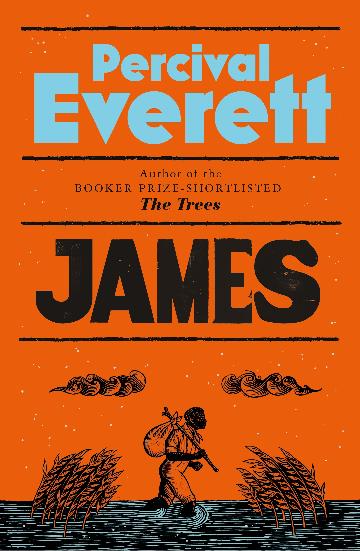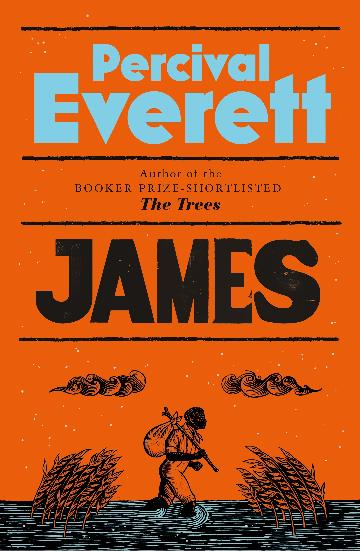Percival Everett
James
James
Couldn't load pickup availability
Susan's Review
African American writer Percival Everett’s new novel James is at one level a re-writing of Mark Twain’s canonical novel Huckleberry Finn. Everett’s narrator is not Twain’s young white boy whose conscience is troubled by racism, but his runaway companion, a black slave. Set in the lead-up to the American Civil War, the novel begins when the slave Jim, privately self-named as the more dignified James, discovers that he is about to be sold to a different owner and separated from his wife and young daughter. His attempt to gain his freedom and rescue his family, sometimes accompanied by Huck, is presented as a series of dangerous adventures, admirable cunning and moments of heroism; of wry humour and laugh-out-loud farce. But James’s story also gives voice to the truth of white America’s racist history: the cruelty of slavery, murder, routine floggings and rape. The perception of black people as animals. As both an object of and witness to such harrowing experiences, James’s typically unemotional tone reinforces his sense of helplessness as a black slave destined to be bought, sold and ruthlessly degraded.
In the face of both savage and casual racist abuse, James uses a crucial mechanism of survival: the leading of a double life through which he disguises his intelligence and ability to read and write by performing the ignorance required to sustain white culture’s assumption of superiority. One striking example is James’s use of language: he speaks an ungrammatical black dialect to his white ‘masters,’ but tells his story in lucid, articulate prose. He also engages in complex and sometimes humorous philosophical debates about human rights with the likes of Voltaire, Locke and Kierkegaard. James emerges not as a degraded animal but as an individual in his full humanity: a serious thinker, reader and writer, as well as a loving husband and father, and a loyal friend.
But James is much more than a straightforward re-writing of Huckleberry Finn from the perspective of a black slave. Firstly, unlike Twain’s novel, it refuses to grant redemption to white people, even those who acknowledge their complicity in racism. Everett also reveals a secret that Twain could never have envisaged, one which encourages us to re-think the concept of race itself. Finally, the conclusion proposes a confronting, indeed chilling response to racial inequality; one that questions the Enlightenment belief in reason as the basis for social progress. The novel ultimately asks: what is the value of reason when white people see no reason to question the unjust nature and brutal effects of their use of power?
In a recent interview about James, Percival Everett remarked that he would “be offended if it wasn’t banned.” Given the current and disturbing banning of books in America by right-wing zealots — people who reject any challenge to their supremacist version of history and society — the banning of Everett’s new book in his country is a distinct possibility. This deeply moving, at times heartbreaking and always thought-provoking novel — one that surely has relevance for Australia’s own history of racism and its legacy — should be required reading for us all.
Publishers Reviews
'Percival Everett is a giant of American letters, and James is a canon-shatteringly great book' – Hernan Diaz, Pulitzer Prize-winning author of Trust
From the Booker Prize-shortlisted author of The Trees James is an enthralling and ferociously funny novel that leaves an indelible mark, forcing us to see Mark Twain’s The Adventures of Huckleberry Finn in a wholly new and transformative light. The Mississippi River, 1861.
When the enslaved Jim overhears that he is about to be sold to a new owner in New Orleans and separated from his wife and daughter forever, he decides to hide on nearby Jackson’s Island until he can formulate a plan. Meanwhile, Huck Finn has faked his own death to escape his violent father who recently returned to town. Thus begins a dangerous and transcendent journey by raft along the Mississippi River, toward the elusive promise of free states and beyond. As James and Huck begin to navigate the treacherous waters, each bend in the river holds the promise of both salvation and demise. With rumours of a brewing war, James must face the burden he carries: the family he is desperate to protect and the constant lie he must live. And together, the unlikely pair must face the most dangerous odyssey of them all . . . From the shadows of Huck Finn’s mischievous spirit, Jim emerges to reclaim his voice, defying the conventions that have consigned him to the margins.
Share


